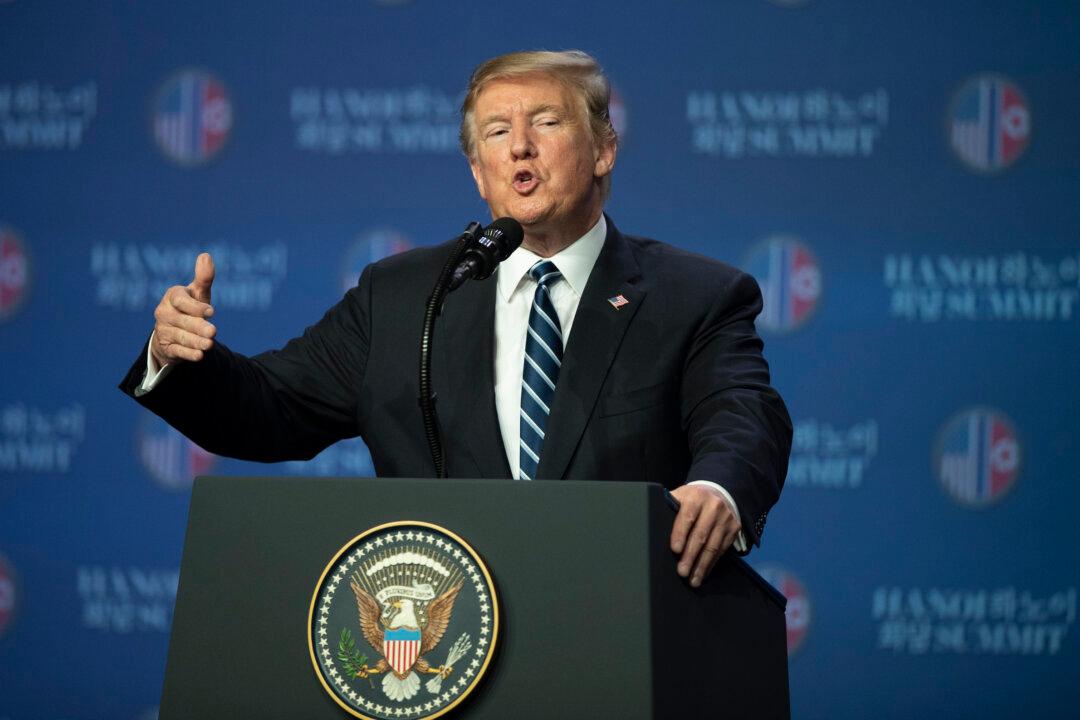WASHINGTON—President Donald Trump’s decision to walk away from the summit with North Korean leader Kim Jong Un without a deal sent a clear message to Beijing that he has a strong card to play in trade talks.
Trump met the North Korean leader for a second summit last week, in Vietnam’s capital, Hanoi, where both sides failed to reach a deal on denuclearization because of a dispute over lifting economic sanctions in exchange for partial steps toward denuclearization.





